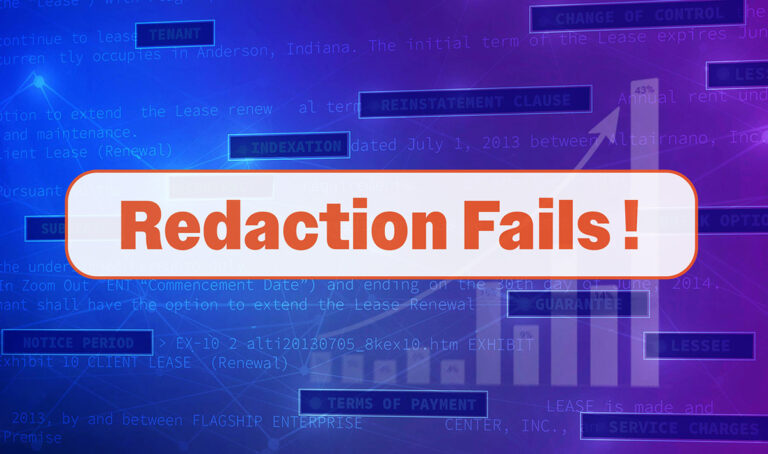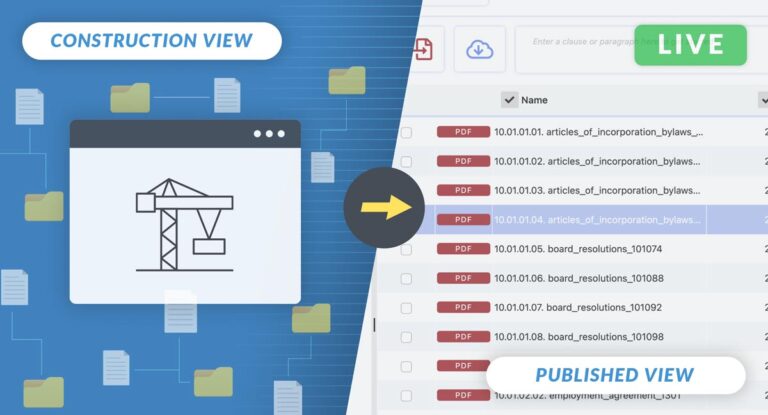Due diligence is the vital audit or investigation of a potential investment and is a key component within M&A. While mergers and acquisitions have been around since the advent of businesses, a formal legal procedure didn’t come into effect until the United States Securities Act of 1933. The legislation was put in place to protect both parties to the agreement. In short, M&A due diligence generally refers to the buyer conducting a process of thorough research before entering into a deal with the target business. The procedure is intended to protect potential investors, the business, and clients by gaining potential oversights. Due diligence is crucial before committing to a financial transaction or agreement with another business.
However, DD in M&A is not just limited to the buy-side – Vendor due diligence has grown in popularity in recent years. Vendor due diligence is an in-depth report on the financial health of a company that is being sold. When done right, it allows the seller to be aware of opportunities to enhance the business’s value before the sale, and it allows for a more informed and faster sales process down the road.
M&A buyer due diligence can be a lengthy process, especially if the procedure is targeting a large company. The aims are to decide if the transaction should go ahead, and if so, at what cost and under what precise terms. M&A due diligence research focuses on areas such as legalities, assets, finances, and the company’s organisation and history.
How are due diligence processes facilitated?
Naturally, the M&A due diligence process requires a large data exchange which can take some time to complete. A well-organised document management system is imperative to the success of a due diligence process. A virtual data room, for instance, allows documents to be stored, organised, and subcategorised in the cloud. With data rooms, those performing the investigations have a way to easily and securely access a vast quantity of documents. The data room should be organised efficiently, so that it is easy to navigate, and should be made available to the buyer as soon as possible in the due diligence process.
Regardless of the sector, these are the key things you should undergo when conducting your own due diligence.
5 key points of any Due Diligence process in M&A
1. Company/Organisation Overview
Your due diligence research should seek to gain a thorough understanding of how the organisation is structured. You’ll need a deep insight if you are to make well-informed decisions. Find out the full history of the business and be sure to check if the company has changed its name in the last few years. Doing so will allow you to trace the business history back as far as it goes. If the business is overly complex with a range of products and services, it could prove difficult to acquire certain documents that you’ll need further down the line.
As you go through your due diligence, ensure to evaluate the process. For example, how has the process been in acquiring the necessary documents? Was there ease of entry? If you’ve stumbled upon hesitations, second-guesses, or gaps in the organisation’s history, these things could be a cause for concern.
You’ll need to take a look at the company bylaws; it’s critical to be aware of all of the internal legal rules that must be followed by the organisation. You will need to gain information about every country whereby the company owns an asset, has employees, or conducts its business. Request to see a ‘Certificate of Good Standing’ from each of the applicable countries. The certificate confirms that the business has fulfilled the correct statutory requirements and is permitted to do business in that country or state. It will also confirm that payments have been made for any state fees. You will also need to look over the company’s annual reports and view a full list of their shareholders.
It’s vital to review the reputation of the business as the public perception will impact profitability. Consider also what the competitors are saying and find out what the company’s corporate social responsibility (CSR) is. Asking these questions, perhaps even before delving into the details could be a real timesaver.
2. Assets
Consider the fine details of what the business is selling and make yourself aware of every asset that they have. As well as making a detailed review of their products, services, and assets, you will also need to find out exactly how their products are manufactured. If the company has an array of fixed assets, it may demonstrate a reactive approach to market trends. Ensure that you also review the detailed description of each said asset.
Property, location, and inventory will also come under the category of assets, and these need to be checked for legal compliance with trading and leasing laws. There could always be a red flag that may have gone unnoticed, so make sure that your investigation is as meticulous as possible.
3. Employees
During your due diligence process, you’ll need to accurately gauge an understanding of the company’s employees as well as review and understand how the employees are treated.
You’ll need detailed information on every employee, including their current salaries and roles within the company. Ask yourself how competitive the employee benefit is. Gather information about stock option benefits, pension plans, healthcare benefits, and vacation. Review the employee handbook to see if it has been and will be adequately funded. Find out what the procedure is when it comes to severance packages for employees and look for any disputes in the last few years concerning discrimination or wrongful termination.

4. Finances
Your due diligence process will need to gather all the information about the company’s cash flow and revenue, so you’ll also need all the details of the business’s tax history. Is the company paying the appropriate corporate tax? Is it consistent? Are there any non-disclosed tax liabilities that haven’t been paid? Look into the company accounts and check the history of the accounts both receivable and payable. Ensure that these are checked for any amounts that are currently unpaid. Check if the business’s financial statements have been audited and for how long a period that the audit dates back to. Look at the company credit report and analyse this also. You won’t want to inherit any legal issues, so be sure to keep on top of this.
Look carefully at the financial information and ask yourself what capital the business needs to continue running smoothly. You should also ask yourself what financial commitments the company currently has and what investments it needs to facilitate further growth.
Gaining an understanding of how the company turns a profit is equally beneficial during your due diligence. Does the company show growth opportunities? Are the revenue projections consistent with their initial offering? What manufacturing or gross company expenses should you be made aware of? Look at the company’s pricing strategies also, to understand its pricing philosophy.
To fully understand how the company turns a profit, you’ll also want to spend some time looking to the customers. You’ll need to consider if there will be any issues with customer loyalty once the purchase is complete, and how to address these. You’ll want to find out how happy the customers are about their relationship with the business.
5. Contracts
During the due diligence procedure, you’ll need to review all types of contracts entered into by the company. Typically, a business may have contracts with banks, distributors, employees, other corporations, contractors, and shareholders. Your due diligence should include all bank agreements, loans, collateral pledges, warranties, installment sales, and distribution contracts. Look also at stock purchases, mergers, acquisitions, or noncompetition agreements.
Be sure to review the company’s material contracts and any agreements or subsidies that may have with 3rd parties, partnerships, or joint ventures. These include, but are not limited to, marketing agencies, shareholders and company directors, franchise agreements, or intellectual property. Look to gather information that explains the supply chain and transportation costs. Check the company’s employment agreements and any exclusivity agreements also. Reviewing the contracts can be a lengthy part of the process, here you’ll be glad of a virtual data room to make a systematic analysis.
Due diligence should have access to all prior and current contracts the new company has in its possession. You’ll want to look into how the company deals with their existing contracts and how they have dealt with their contracts previously.
Imprima, AI and Due Diligence
These are just a few due diligence issues you should be made aware of, and that should be never overlooked. The key is to carefully appoint M&A professionals such as lawyers, accountants, financial advisors and have a reliable & easy to use Virtual Data Room.
In our latest White Paper, we note how the accuracy for humans for picking up red flags in their due diligence ranges from 50 – 80%. Our AI with Machine Learning brings that up to 95%+. With full integration into our Virtual Data Rooms, your due diligence could be more effective.
Read how we’ve integrated the two, how the technology can thrive from the repetitive nature of the due diligence process, and most importantly, how this could help you.







